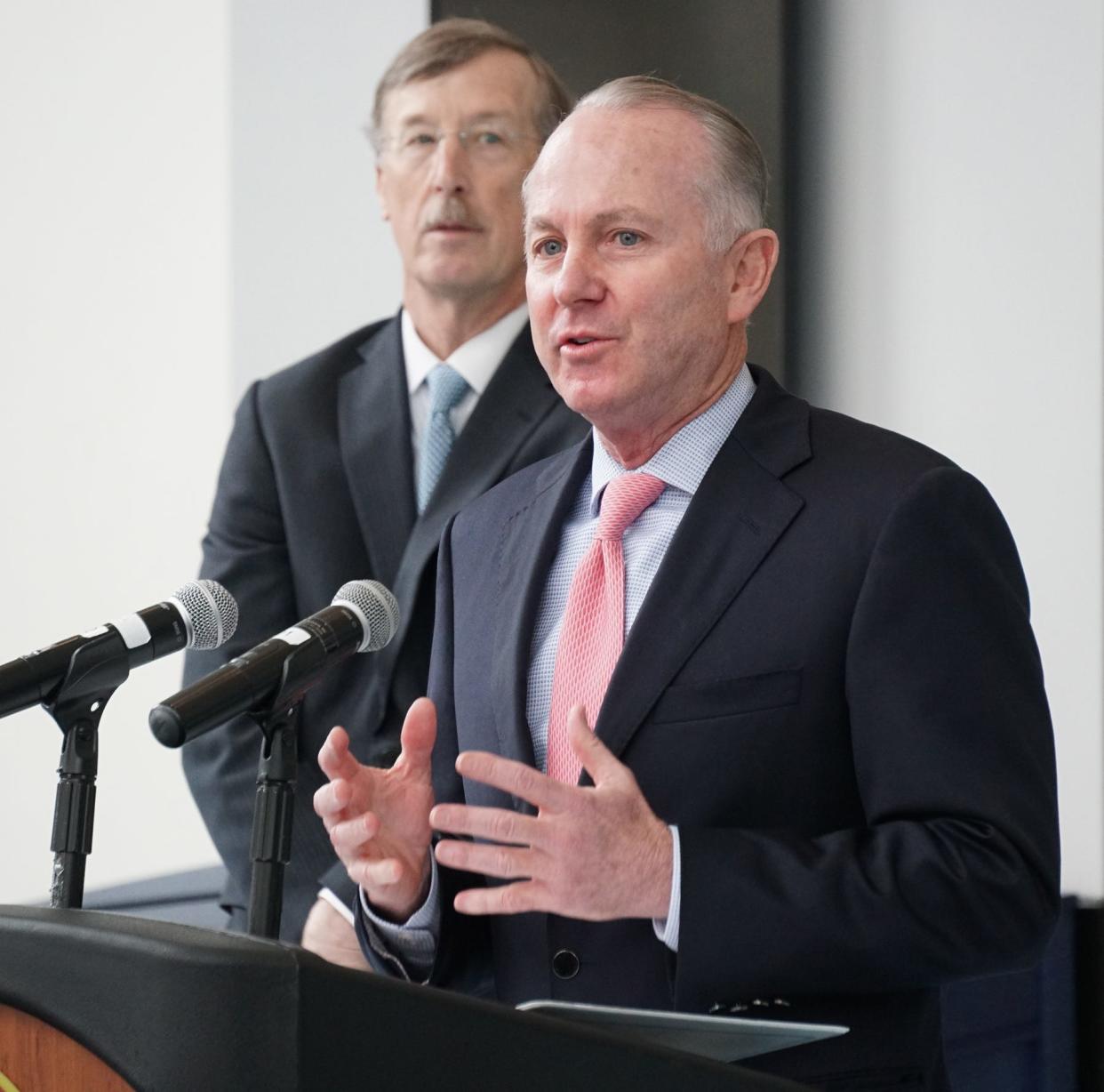Lifespan and Care New England heads are stepping down. What it means for RI health care

On Wednesday, Care New England announced that President and CEO Dr. James E. Fanale plans to retire early next year. This follows last month's announcement that Lifespan President and CEO Dr. Timothy J. Babineau is resigning at the end of May. Both announcements come after February's rejection of a proposed merger between the two health care systems.
Here’s what’s known, and what is uncertain:
Why is this of interest to Rhode Islanders?
Lifespan is the state’s largest health care system and CNE is the second-largest. Lifespan has 1,165 licensed beds; CNE has 669 licensed beds.
What about the workforce factor?
At latest count, Lifespans employs 16,564, with CNE employing about 7,500. There are vacancies in both systems, in part a legacy of the COVID-19 pandemic.
What hospitals do the systems operate?
Lifespan: Rhode Island, Hasbro Children's, Miriam, Newport and Bradley.
CNE: Kent, Butler and Women & Infants.
Do they have other centers and programs, too?
Yes. Lifespan runs Gateway Healthcare, a provider of community behavioral health care, and Coastal Medical, a primary care practice, among others. CNE runs The Providence Center, a provider of mental-health and other services, and VNA of Care New England, a home health care and hospice agency, among others.
What are the other hospitals in Rhode Island?
Our Lady of Fatima in North Providence; Landmark Medical Center in Woonsocket; Roger Williams Medical Center in Providence; South County in South Kingstown; and Westerly.
Could this be an opportunity for statewide changes?
State Sen. Joshua Miller, chairman of the Senate Committee on Health & Human Services, says it is.
Legislation to raise Medicaid reimbursement rates and otherwise improve delivery of health services has sparked what he called “very positive conversations” about the larger health care picture. Miller told The Journal that with the impending departure of Fanale and Babineau, “new leadership [at the systems] could lead to conversations that would have more innovation than we’ve seen in the past. I think we have an opportunity. I’m trying to be cautiously optimistic.”
Dr. Michael Fine, former director of the state Health Department, agrees but is less optimistic, telling The Journal:
“Our history suggests we will fiddle instead of lead, and can expect higher costs, poorer outcomes and more frustration for those seeking care, as we are likely to put profit first, instead of building a health care system that is for people, not for profiteers.”
In the wake of the rejected merger, have alarms been sounded?
Yes, by the United Nurses and Allied Professionals, UNAP, which represents more than 7,000 health care professionals and nurses.
In a statement sent Thursday to The Journal, the union wrote that it “remains deeply concerned about the future of Care New England, and especially the future of Kent Hospital, which has long served as Warwick's community hospital. To date, there has been no commitment from government officials to secure funding for Care New England.
"We urge the General Assembly to allocate the ARPA funds, as requested by Care New England, to help stabilize their finances and avoid a hasty sell-off to a for-profit – a decision that could have long-lasting negative repercussions on Rhode Island's health care system.”
This article originally appeared on The Providence Journal: Lifespan & CNE heads are stepping down. What it means for health care.

